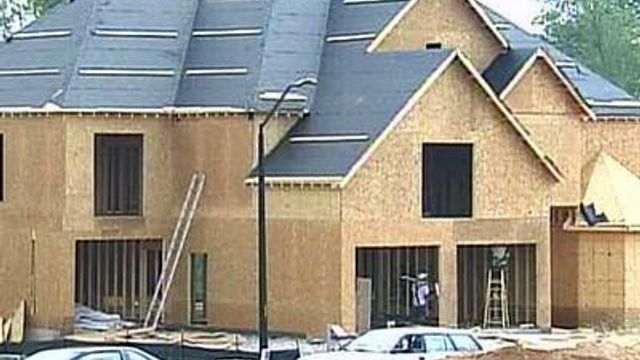Raleigh Hears From Public on Impact Fees, Infill
Proposals being considered by the City Council would more than double impact fees and let neighborhoods set regulations on infill.
Posted — UpdatedOne proposal would more than double the impact fees charged to the builder of an average-sized house.
Supporters argued that would make growth pay for the infrastructure enhancements – including improvements to roads and parks – that it requires. Opponents, however, claimed the raise could hurt an unstable economy.
WakeUP Wake County, a civic group with about 400 members, praised impact fees as an effective means to manage growth.
"Impact fees on new development, residential and commercial, are a way for development to help pay its fair share," Karen Rindge, chairwoman of WakeUP!, said.
Opponents argued that the increased impact fees would unduly burden the Triangle's economy, already weakened by a 29 percent drop in home sales in January, compared to the same month in 2007.
"With the economy as fragile as it is now, I think it's very dangerous to do anything that is going to make it more difficult for anyone to buy homes," mortgage lender Connie Tench said.
Some homeowners expressed fears that the cost would be passed onto them.
"I don't think that's right," resident Junius Winder said. "You are already paying enough as it is for the house."
Under the proposal, a complex, sliding scale would raise the impact fees for an average-sized new home of 2,800 square feet to $2,500 from $1,200. Mayor Charles Meeker said it would raise $8 to $10 million a year to invest in roads and parks.
The public also weighed in on the city's regulations regarding infill – the practice in which old homes are knocked down and replaced with larger ones.
Infill has become an issue in some of Raleigh's older neighborhoods inside the Beltline. Since 2000, approximately 600 home shave been torn down and rebuilt.
Some homeowners say the presence of houses twice or triple the size of the original ones ruins the character of their neighborhoods. Others, however, say infill keeps property values up and that restricting the ways in which homes can be rebuilt restricts property rights.
"For those people who are opposed to putting restrictions on what people can do with their private property, I think the only option is going to be to hold a new election and get an entirely new City Council," Georger Harter, an opponent of restricting infill, said.
The Raleigh Planning Commission has proposed using Neighborhood Conservation Overlay Districts to set building standards in specified older neighborhoods. The commission voted against Meeker's original proposal to reduce the maximum height of homes and increase required setbacks.
• Credits
Copyright 2024 by Capitol Broadcasting Company. All rights reserved. This material may not be published, broadcast, rewritten or redistributed.






